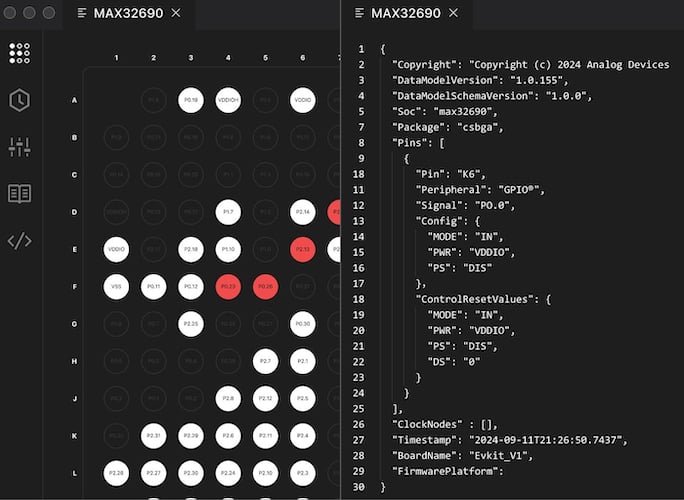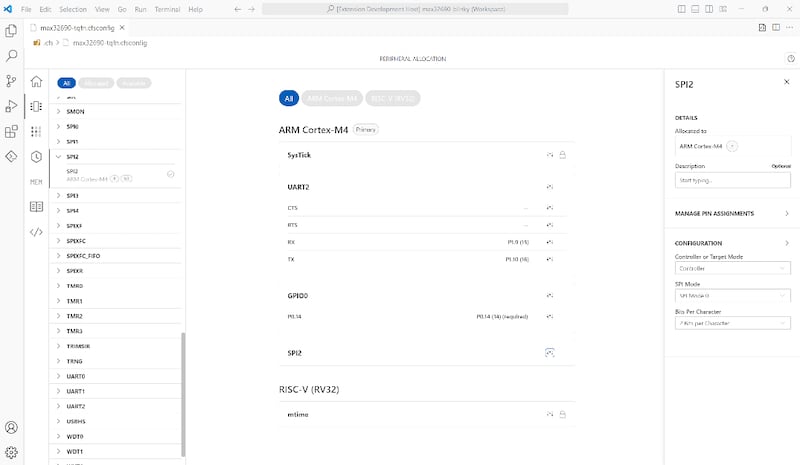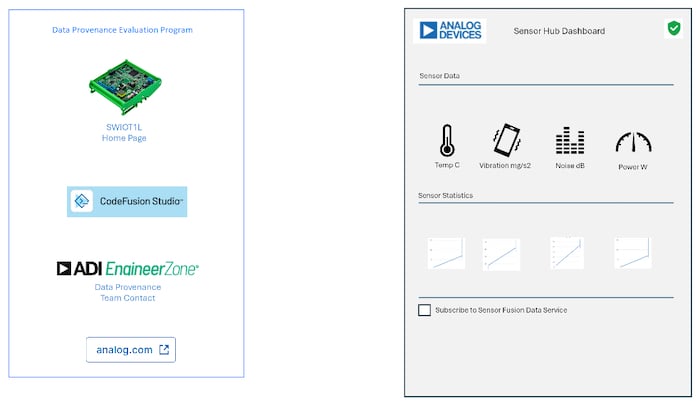This week at Embedded World 2025, Analog Devices unveiled the latest expansion to its CodeFusion Studio to simplify the development of complex processing systems. Initially launched in October 2024 , CodeFusion Studio connects code to hardware using a graphical interface. This expansion includes several new features and offerings, all of which aim to provide a more intuitive view of system functionality and data fidelity.

CodeFusion Studio is ADI's embedded software development environment.
In the age of heterogeneous integration and distributed computing, developers must effectively write code and integrate multiple complex processing architectures. Distributed computing can lead to security concerns, especially when small and low-power devices may not be capable of performing robust encryption. To address these problems, Analog’s newest CodeFusion Studio update includes new capabilities that could dramatically change the way software is developed in the IoT.
Graphical System Monitoring
One of the key new features in CodeFusion Studio is the System Planner, which displays resource consumption, configuration, and core-level processing.

CodeFusion Studio's latest expansion improves system-level planning and data security.
While single-core architectures are still commonplace for a variety of applications, modern innovations can often demand multiple unique cores, creating new hurdles when developing software. Analog says CodeFusion Studio's System Planner gives designers a new way to heterogeneously integrate multiple cores in a simple, intuitive fashion.

The System Planner in CodeFusion Studio allows designers to visually allocate resources and configure peripheral blocks with a variety of RTOS support out of the box.
Within the System Planner, designers will find a bounty of resources that can simplify the development process from graphical resource allocation to multi-core project creation. In addition, the System Planner leverages an open-source architecture, allowing designers to use common or uncommon firmware to achieve their own unique goals.
Improving Data Trust
Beyond the System Planner, Analog has also introduced its Data Provenance solution that enhances data trust in edge devices. In the IoT, where devices are widely distributed and more subject to malicious activity, data trust is critical to ensure proper functionality. The Data Provenance solution may help designers maintain a robust level of security in their data.

The Data Provenance solution outlines a trust framework to leverage with edge devices, securing data and increasing fidelity.
The Data Provenance solution effectively creates a trust framework for data originating at the edge. The solution can attach secure metadata that can establish trust through cryptography while simultaneously tracking that data as it moves toward the central processor. As a result, designers can have more confidence in data that may be used for machine learning, real-time sensing algorithms, and more.
Simplifying Software Development
The System Planner and Data Provenance solution will be available for download on April 25 of this year, along with early access kits and support through the ADI Developer Portal. While the CodeFusion Studio platform currently supports a variety of Analog’s MAX32 and MAX78 devices, the number of supported devices may increase in the coming years as designers evaluate the effectiveness of CodeFusion Studio.
 English
English
